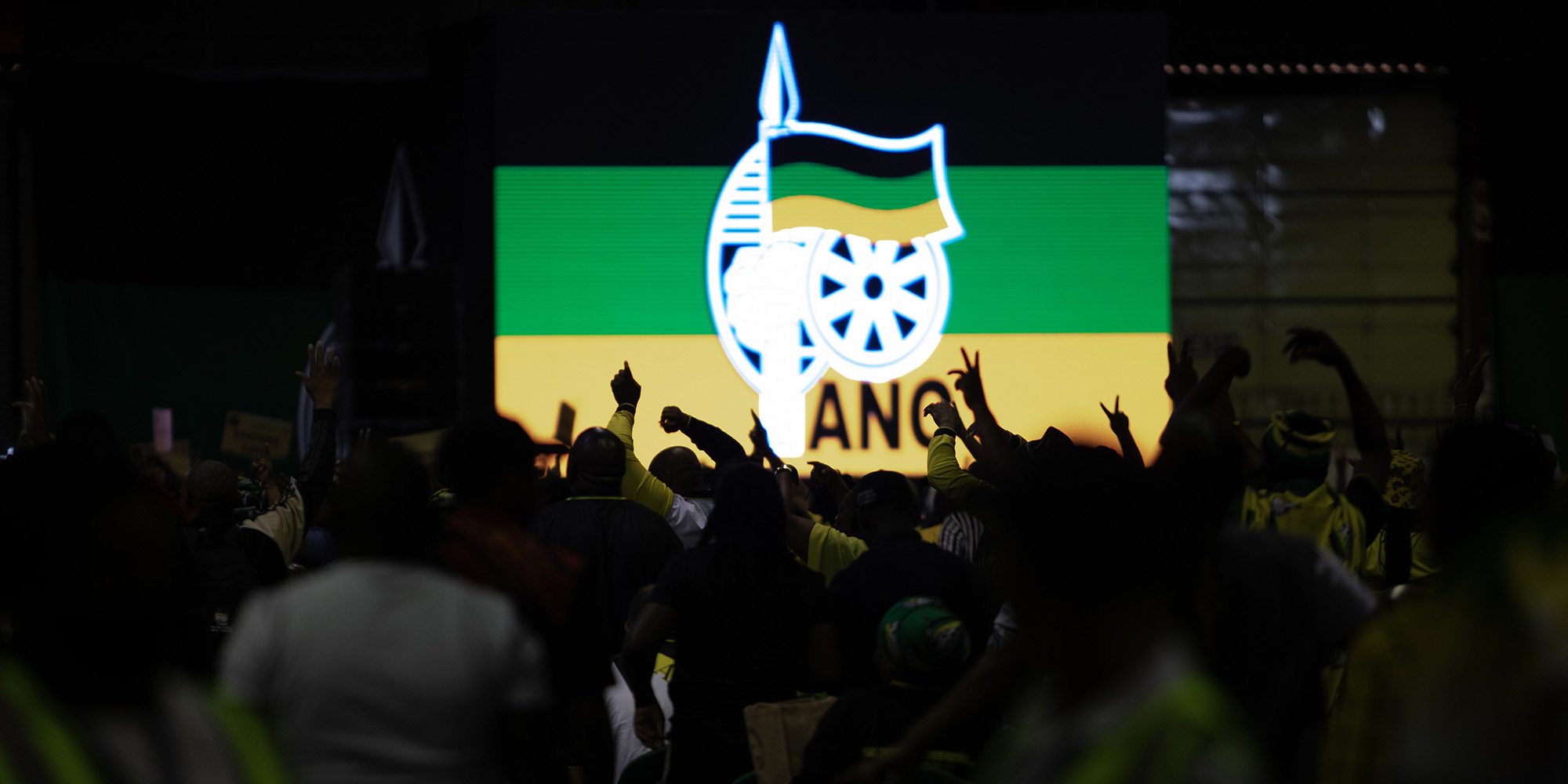Briefing the media following discussions at the ANC conference late on Thursday, MP Joe Maswanganyi said the party would be looking to amend the Political Party Funding Act — which the ANC blames in part for its parlous financial state.
The funding legislation, which caps the amount that can be donated to political parties in a single financial year and requires the public disclosure of any donations above R100,000, has caused “unintended consequences”, Maswanganyi said.
Other South African political parties were also having “serious issues” with funding as a result of the law, he added.
“The ANC used to get a lot of money from outside the country,” the MP said.
Read more in Daily Maverick: “The ANC’s long history of taking cash from dodgy donors”
The Political Party Funding Act has, however, placed major restrictions on the forms of support that local parties may accept from foreign entities.
The ANC is calling for another look at the legislation — with Home Affairs Minister Aaron Motsoaledi tasked by the party with investigating the possibility of revising the law.
But even if it is not amended, the ANC is asking the South African government to increase funding to political parties.
In the words of the relevant resolution: “The state must fully fund the activities of all political parties as part of funding democracy, and protecting the independence, transparency, accountability and integrity of political parties.”
Current funding not enough, says ANC
The phrasing of the resolution — in particular, that the state must “fully fund” political parties — is unlikely to be received well.
Political parties in South Africa — which receive enough votes in elections to secure at least one seat in Parliament — already benefit from state funding. The parties are allocated money in proportion to their electoral returns from both the Electoral Commission and Parliament.
Maswanganyi acknowledged as much in his briefing, but said these sources were insufficient.
Read more in Daily Maverick: “Political Party Funding Act has more work to do”
The MP said the ANC needed money not just for its staff and internal processes, but also for the “programmes we run in communities”.
Visit Daily Maverick’s home page for more news, analysis and investigations
The resolution document on finance specifies that the ANC “has not made progress to increase its revenue base to support its programmes, and still largely depends on private donations”.
Shortly after, it bemoans the fact that “big business and the ultra-rich have preferred to fund other parties rather than the ANC, and that this situation will not change as long as the ANC has pro-poor policies”.
Maswanganyi said the party will also be looking at other potential revenue streams, which might include raising membership fees, leveraging the ANC’s property holdings, and exploring new “investment opportunities”.
Call for municipal boundaries to be redrawn
The state funding call is not the only resolution from the conference that will raise eyebrows.
Another is the party’s call for a fresh look at the demarcation of municipal boundaries — to potentially reduce the number of municipalities.
Briefing the media about this, deputy cooperative governance minister Thembi Nkadimeng stressed that redistricting proposals are considered every five years in any event, and that the motivation behind it is the improvement of service delivery.
Nkadimeng said that some rural municipalities were unable to attract the necessary municipal skills to provide services to residents, and that these municipalities generate virtually no revenue — being almost entirely grant-dependent.
In such cases, where municipalities have very few wards, it might make sense to redraw municipal boundaries to see those areas join existing municipalities which are better resourced.
Redistricting is often a highly contentious matter, however, as the party in power can exploit the process to create maps which better serve its electoral prospects. In the US, this is known as gerrymandering and is a perpetually vexed issue.
Party also wants Electoral Act amended
The ANC’s sub-commission on legislature and governance identified hung councils, and coalitions, as the source of “serious instability” which is “impacting on service delivery”.
Read more in Daily Maverick: “Electoral reform is absolutely critical but should not be rushed”
As an example of the problem, Nkadimeng cited eThekwini: “With independents included, they’ve got around 24 parties and individuals which make [up] but one council.”
Nkadimeng said the ANC was thus calling for the introduction of a higher threshold for proportional representation in local government. In other words, parties or individuals would have to win a larger number of votes to ensure a seat on their local council.
“It makes council more functional. It makes council to be able to sit, plan, deliver,” Nkadimeng said.
The deputy minister said that in terms of the current coalition arrangements in local government, councils could often not even pass budgets.
This proposal is also likely to invite some sceptical comment, given that the electoral landscape of South Africa is clearly splintering in ways that do not benefit the ANC or other large parties. DM





